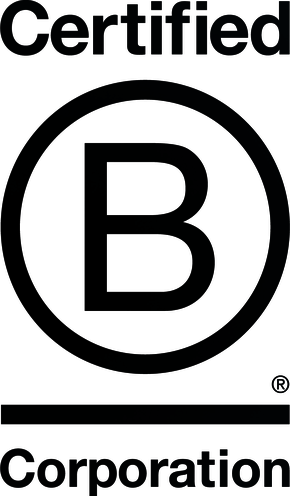Search engine optimization is an ever changing landscape. As algorithms and SERPs change, old SEO tactics that used to provide ranking benefits now simply don’t work anymore or can even actively harm the performance of your website.
Therefore, it is important to update tactics as times change and always test theories before using a new tactic or ruling out an old tactic. In the following article, we look to highlight 10 old SEO tactics that should probably be removed from your SEO tool belt.
Table of Contents
- Keyword Stuffing
- Web 2.0 Submissions
- Blog & Forum Commenting
- Article Directories
- Link Exchanges
- Exact Match URLs
- Cloaking
- Doorway Pages
- Private Blog Networks
- Article Spinning
Keyword Stuffing
Keyword stuffing can be done in a handful of ways but, simply put, it is overusing keywords in metadata or content. Years ago, algorithms would look at the number of keywords throughout a piece of content and assume that the more times a keyword was used, the more relevant this page was for searchers. Including the keywords is still important today, but content and metadata should read naturally for humans and not be overstuffed.
Examples of Keyword Stuffing

- Reusing the same keyword multiple times in the content – This typically results in content that feels spammy and doesn’t read naturally.
- Using meta tags – The meta keywords tag stopped being recognized by Google in 2009 and no longer provides ranking value to a page.
- Image alt tags – Instead of stuffing this tag with keywords, the alt tag should just accurately describe what the image shows.
Web 2.0 Submissions
Web 2.0 sites are platforms that allow self submission of content such as Blogspot, Medium, Quora, and others. Marketers would then submit content and include links back to their website for the purposes of passing along link equity. Starting in 2005, Google started penalizing sites for spammy and low quality unnatural link building, especially from these types of sites.
Additionally, many of these websites introduced the “rel=nofollow” attribute so that any links being built would not pass along link equity. Subsequent updates like the Penguin update in 2021 further devalued backlinks from these sources.
Blog & Forum Commenting
As popularity of online forums and blog commenting grew, people began to realize you could spam links back to your site from any high authority forum or blog like Reddit or YouTube. As with Web 2.0 sites, the no-follow attribute made its way to forum and blog commenting which stripped away the link value of these posts.
However, these forums and blog comments can still pass along traffic, so it would be incorrect to say that this tactic has zero value. Rather, there is no value from a link building perspective, but referral traffic can still be a valuable result of links from highly trafficked forums and comment sections.
Article Directories
An article directory is a website where you write a few hundred words of content and then include a bio or profile at the bottom of the article. This bio would then contain links with keyword-rich anchor text. The hope was that by submitting this article, it would be pushed to other websites, thus giving you free, easy backlinks. However, like most tactics, it was abused and filled many sites with thin spammy content. Algorithms like Penguin and Panda have made this tactic all but obsolete.
Link Exchanges
Link exchanges were popular in the 2000’s with movements like #followforfollow. A site owner would put a URL on a page from their website in exchange for their site being listed on the other person’s website. If this happens a few times, it probably won’t cause an issue. However, if this is done excessively across hundreds of websites, then it goes directly against Google’s quality guidelines. Moreover, many of the previously mentioned algorithm updates have devalued this practice anyway, so the juice is not worth the squeeze.
Exact Match URLs
Exact match URLs have been a point of contention for many years now and there is some truth to both sides of the argument.
On one hand, exact match URLs used to be much more effective for ranking purposes than they are now. For example, there are many sites today that rank #1 or have the answer box for their term without having exact match or keyword rich URLs.
On the other side of the argument, exact match domains still appear to be very powerful. Despite what Google and other search engines say, we’ve seen first hand here at NextLeft where a website with a worse backlink profile, less content and lower E-A-T still outrank websites that are outperforming them on all of these fronts due to an exact match domain.
The main takeaway here is that keywords found in URLs still have weight, but this is much less effective than it used to be. Rather than only thinking of keywords in URLs, you also want to think about signals like brand recognition and user experience.
Cloaking
Cloaking is an advanced black hat technique where the site served to the user is different from what is served to search engines. Cloaking can take on a number of different forms, including:
- User-Agent Cloaking: A software based program will serve different content based on the user-agent request.
- IP based cloaking: Redirects are setup in the htaccess file to redirect users to a higher ranking page based on their internet service and location
- JavaScript cloaking: A separate site is shown to users with JavaScript enabled sites. Most crawlers would crawl with Javascript disabled but they are getting better at it over time.
- HTTP_REFERER cloaking: The requester’s header is checked and a cloaked or uncloaked site is served.
- HTTP Accept-language header cloaking: If the HTTP Accept language in the header is a search engine, then a cloaked version of the site is served.
Not only is this tactic dead but it would actively hurt your website for doing this and should be avoided at all costs.
Doorway Pages
Doorway pages are domains or pages designed to rank in SERPs but send users to a different page. Google has stated that these types of pages clutter search results, provide a poor user experience and are not viewed positively by search engines. Examples of doorway pages include:
- Multiple domains or pages that target a specific region or query but then redirect users to one page.
- Pages that are substantially similar but are generated to funnel users to a different portion of the website.
Not only is this a prime example of duplicate content, but Google has explicitly stated that this practice has been devalued by the search engine since 2012.
Private Blog Networks
Similar to exact match URLs, this is another contentious practice in the SEO world. Private blog networks, or PBNs, are a network of blogs used to build backlinks to websites. These sites tend to be built on different platforms, server locations, and registrars to help hide the network. Oftentimes, expired domains with a ton of backlinks are purchased at auction and then used for the sake of writing blog posts that link back to other websites.
The reason this is a contentious practice is because if done well, these types of private blogs can go undetected and provide some benefit. However, if done poorly with the same article spammed across multiple different websites, it will probably come with a penalty.
Long story short, it is best to stay away from this tactic in almost all cases.
Article Spinning
Article spinning is a similar practice to using PBNs. Whereas spamming duplicate content is simply copying and pasting content and backlinks from one site to another, article spinning involves taking content and slightly modifying it to avoid plagiarism. Article spinning has grown in popularity as software can be used to complete the task. That said, spun content is typically poor for the purposes of ranking pages. Moreover, Google has gotten much better at sniffing out this type of content and not showing it the SERPs.
Let Nextleft Look into Your SEO Tactics!
With the ever changing landscape that is search engine algorithms, you need to stay in tune with updates and the best SEO practices. If you are a business owner and your SEO company has been using any of these tactics, schedule an audit with NextLeft! We can take a look at your SEO campaign and see if you are being negatively impacted by any of these practices. Contact us today!




